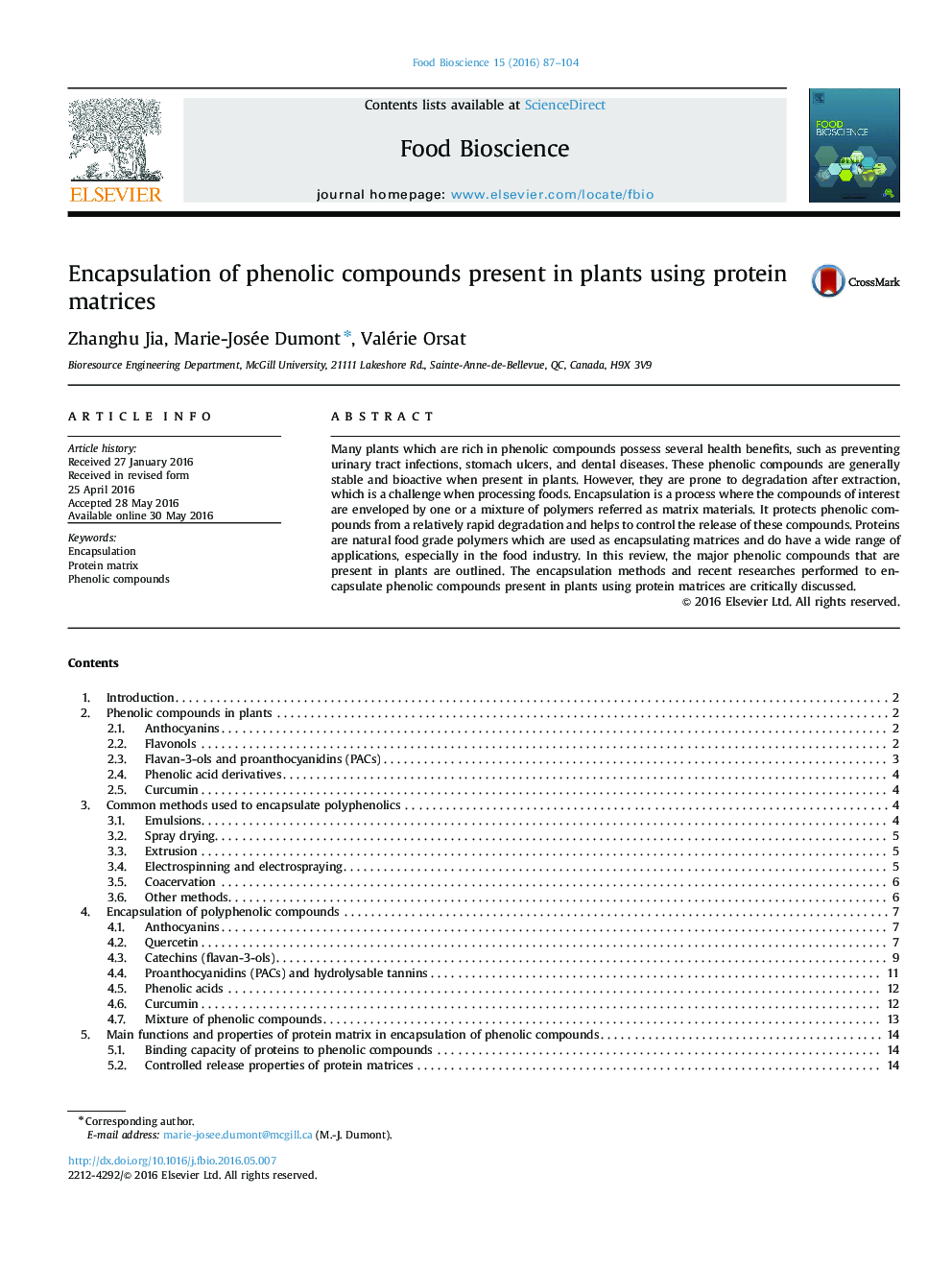| Article ID | Journal | Published Year | Pages | File Type |
|---|---|---|---|---|
| 19654 | Food Bioscience | 2016 | 18 Pages |
Many plants which are rich in phenolic compounds possess several health benefits, such as preventing urinary tract infections, stomach ulcers, and dental diseases. These phenolic compounds are generally stable and bioactive when present in plants. However, they are prone to degradation after extraction, which is a challenge when processing foods. Encapsulation is a process where the compounds of interest are enveloped by one or a mixture of polymers referred as matrix materials. It protects phenolic compounds from a relatively rapid degradation and helps to control the release of these compounds. Proteins are natural food grade polymers which are used as encapsulating matrices and do have a wide range of applications, especially in the food industry. In this review, the major phenolic compounds that are present in plants are outlined. The encapsulation methods and recent researches performed to encapsulate phenolic compounds present in plants using protein matrices are critically discussed.
